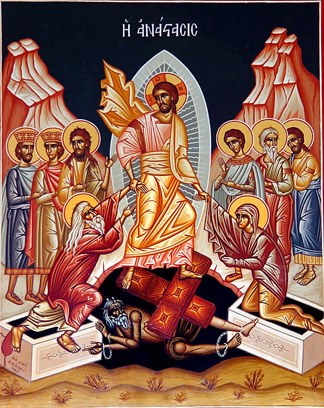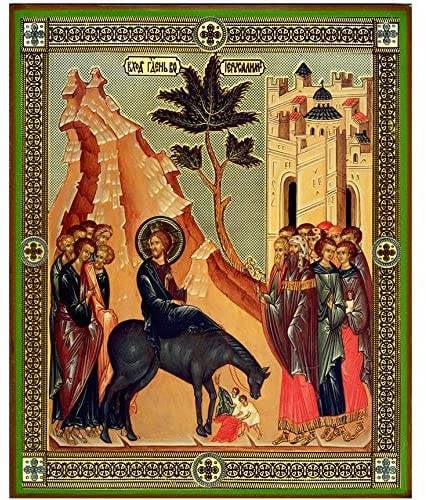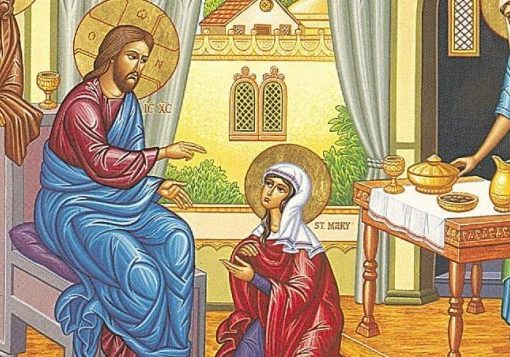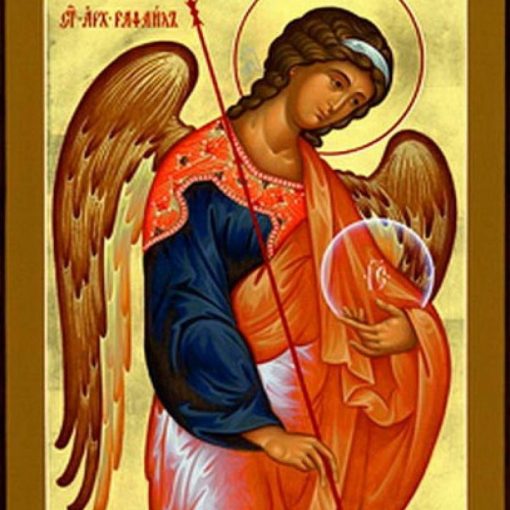Great and Holy Saturday in the Byzantine Rite:
Intellectual elites, so-called, in what we are presently calling the early modern era, flaunted their boldness by proclaiming things like “God is dead”.
Personally, I am skeptical that there was any high-minded philosophy behind this provocateuring; it is true, though, that many have done some rhetorical gymnastics to actually find positive meanings within the thought experiment.
Had any one of us the good fortune to be one of the Twelve, or a close disciple or friend of Jesus, maybe He would have been part of our daily lives for some time now – no doubt, the most interesting months of our lives – and today, we are adrift and desperate for His direction, as He lies dead in a tomb.
God is, after all, dead.
As He prophesied.
Perhaps Jesus’ contemporaries who embraced Him as Messiah couldn’t fathom His return to the Father meant a human death. Maybe they wanted the same kind of fireworks so many Christians today hope for when they await “The Rapture” or whatever. A disruption of the existing order that would replace the world as they knew it with a more accommodating heavenly kingdom, without them personally having to taste death.
Who wouldn’t want that?
I imagine that those who loved and believed in Jesus in His days on earth felt desperate for the kind of direction and purpose He gave them when he walked among them, during the hours in which God was dead.
Because the Resurrection has made the first day into the seventh: that is, because we now celebrate a little Pascha each week as our keeping of the Sabbath day, let us perhaps conceptualize the age in which we live as the seventh day.
We live on Holy Saturday, when God is dead, and we wait on His return. For now, we must afford meaning to our discipleship by keeping His commandments and attaining to righteousness not in our own name, but in His.
That’s the thought experiment I propose. The Lord comes back tomorrow; let Him find us bearing the fruit of our reconciliation and baptism, doing good and loving His creatures, and glorifying His Name both in word and deed.
It is true that He said, “I am with you always, unto the ages of ages, Amen.” Perhaps it is not upon His return we await.
Perhaps it is upon ours.





